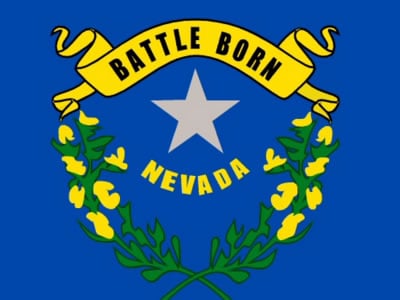With less than 4 million combined residents, Nevada and Delaware have less than half the population of New Jersey. Those three states are currently the only in the US to offer legalized, state regulated online gambling. And in the early going, New Jersey has proven to be the financial leader of the group, as well as the most successful in getting its residents to open up Internet gaming accounts. NJ was showing 200,000+ unique Internet gaming accounts on February 24, far and away more than the combined totals of Delaware and Nevada. But the Garden State claims nearly 9 million residents, more than twice the combined total of the other two states in the young US online gambling industry.
Nevada has decided to offer just online poker at this point in its Internet gambling existence, with Delaware delivering a full slate of casino games as well as poker. On Tuesday, February 26, the two states made US online gambling history when they formed an Internet compact to combine and grow their player pools, and thus their profitability. The Multi-State Internet Gambling Agreement was signed by Nevada Governor Brian Sandoval and Delaware Governor Jack Markell in the Delaware State Office Building in Wilmington, meaning that players located in both states can open accounts in Delaware or Nevada, and enjoy legal online poker from any of the sites certified by either state. This is the first fully legal interstate Internet gaming partnership in the United States.
Sandoval stated, “We’re standing in a moment of history today,” at a special news conference that was convened to discuss the historical agreement. This was not any kind of overnight decision, and has been months in the making. Prior to the 2011 Department of Justice decision to let each individual state decide its own online gambling destiny, the Unlawful Internet Gambling Enforcement Act (UIGEA) had eliminated the legal impossibility of state or federally sanctioned Internet gambling based in the United States. This gambling law did so by successfully prohibiting banks and other financial institutions in the US from processing any transactions which were made to open and fund Internet gambling accounts when the website was based and operated in the United States.
Part of the 2011 decision also declared that Internet transactions between states that legalize online gambling should be legal as well. However, before Tuesday, no such agreements had been made. Both Nevada and Delaware, along with New Jersey, are also aggressively seeking player pool compacts with countries in the UK and elsewhere around the world. In spring of 2013 Markell met with Sandoval in Carson City to first discuss a possible online poker player pool agreement. Sandoval and Markell both agreed that they believed Internet gambling legislation would not be established at the federal level anytime soon, and saw the opportunity as a way for both states to “get ahead of the curve” in establishing player pool agreements across state lines in the burgeoning US online gambling industry. Delaware has a little over 5,000 current unique Internet gaming accounts established for its regulated online casino and poker offerings, and Nevada has yet to announce the size of its player pool.
The point of the partnership is obviously to give each state access to another online poker player pool, and thereby boost liquidity and eventually profitability. But the agreement is a boon for Delaware online poker and Nevada poker players as well. Choice is always good for the consumer, and this simply gives Internet gamblers in those two states more options. Technically, Silver State and First State residents will still have to log on through the state sanctioned websites in the state where they are located. But then they are free to choose from any of the websites which are currently legally offering online poker. And potential players will still have to be located inside the virtual fences of Nevada or Delaware. The two governors declined offers to estimate how much money the agreement would generate, but previous estimates from industry analysts and experts expect $2 billion to over $3 billion per year generated across the United States once a substantial Internet gambling industry is developed.

